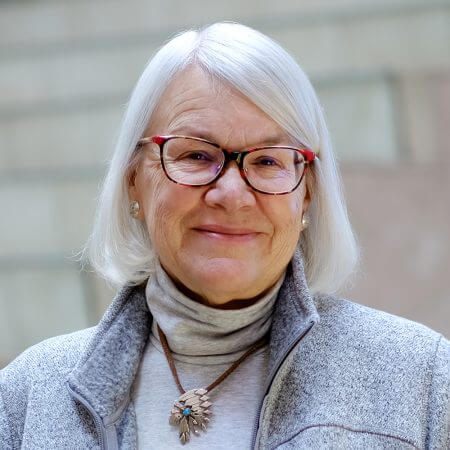
We discuss how advisors can help their clients overcome common roadblocks when speaking to their heirs, and why they need to leave a family legacy letter.
Family Legacy Planning – Part 2: Passing On More Than Money
Hollis Walker: This is #NowMe, a podcast for financial advisers who advise women. Hello, this is Hollis Walker with Jan Blakeley Holman, director of adviser education at Thornburg Investment Management. Welcome back to another episode of #NowMe. Jan, in our last podcast we focused on the issues wealthy individuals have about discussing inheritance with their heirs. You suggested that the main issue is the wealthy individuals’ fear that inheritors will lose motivation if they know they are going to inherit a significant amount of money, and you also identified some issues that arise when a discussion about inheritance doesn’t take place. So, now, are you gonna tell us how to solve that problem?
Jan Blakeley Holman: Well, I am. I’m gonna tell you where to start, but I first wanna say that I think this is about trust. I think the reason that the wealth holders or wealth creators don’t want to tell their heirs, which can be children or adult family members or friends, whoever, about the amount of money they’re gonna receive is they don’t trust what the individual is going to do with that information.
Hollis Walker: And I think that’s kind of natural, don’t you because even a 57-year-old child in your mind as a parent is still a little bit of a 10-year-old.
Jan Blakeley Holman: Right, and some more than others, but where I’d suggest, Hollis, that a person begin the process is to create something that communicates the wealth holder or wealth creator’s legacy on paper, and we call that the family legacy letter. It’s a type of ethical will. Now, that’s a funny term, but an ethical will comes from a long tradition that began in ancient times where people shared their beliefs, their values, their life experiences, and their stories with family members. If you think about yourself or even your friends, I could think about myself, few of us know a lot about our grandparents, their lives and how they lived and what events shaped their lives and how their lives have in turn, in fact, shaped our lives. I can give you a sad anecdote from my own family. My great grandfather shot and killed his wife and killed himself.
Hollis Walker: Wow!
Jan Blakeley Holman: And they were very wealthy and very prominent in Saint Paul, Minnesota, which is a small pond, obviously, but I didn’t learn about that until I was in my 20s, probably my late 20s, and it informed all of the anxiety that was actually in that side of the family. It really helped me understand why my grandmother did what she did and why my father was the way he was and more the way I am. They’re not always terrible stories like that, that people share with their families, but if we live a long life, we want to be able to have somebody know what it was all about, right?
Hollis Walker: Right, I think you’re absolutely right. So let’s go back to that phrase though ethical will. Is an ethical will related at all to a legal will?
Jan Blakeley Holman: No, that’s why it’s a kind of odd name for something. The ethical will is to values, beliefs, and life experiences as the legal will is to tangible objects, real estate, and financial assets. In other words, it’s the giving document, but as far as the will part is concerned, it has nothing to do with legal requirements or information or anything like that.
Hollis Walker: So what’s the real purpose of doing this ethical will?
Jan Blakeley Holman: It gives the wealth holder, wealth creator, and it’s not, for example, in a couple, let’s say you have an older baby boomer couple this is not just one person who’s creating it, both people have had lives. Both people have had experiences, and they have certain beliefs that they want to pass on to their family members, so what’s in it is many, many things. We have a questionnaire that actually will help guide somebody who’s creating an ethical will or the family legacy letter, and it asks about where they grew up, where they lived, what their family’s like when they fell in love, what their work life was like, their life experiences, those types of things.
Hollis Walker: So it’s kind of like a guided memoir essay.
Jan Blakeley Holman: Yes, and, you know, what’s interesting is that our listeners don’t know this, but, Hollis, you have, in fact, written many of these things for wealthy people.
Hollis Walker: I have and it’s for the individual and for the children or heirs. It’s a deeply meaningful process, both for, you know, in the process of writing it and in the reading, the sharing of it with the family members, and also we have to realize that even though parents talk to their children all the time and tell them stories of their lives, they usually don’t sit down with them for 12 hours and tell them their whole life story from beginning to end with some kind of legacy in mind, and so that’s where this process of the family legacy letter comes in.
Jan Blakeley Holman: Right, and some people call this shared memory where you’re sharing memory with family members so they, in turn, can tell their descendants about it. There’s a belief that if a person creates the family legacy letter and if they share it with their heirs they’ll begin to build the trust that they have for their heirs because now their heirs are going to understand what, in fact, it took to either create this fortune or if it was an inherited fortune to keep it going because the numbers on fortunes that are lost are pretty ugly. By the second generation usually 70 percent of families have lost their wealth, and by the third generation 90 percent, so if I, as an heir, find out from my parent that this blood, sweat, and tears and the building of the company and the moving across the country and all of that was amazingly difficult in order to build this wealth, maybe I’m not gonna go buy a Maserati tomorrow.
Hollis Walker: And also it, it allows a level of depth to that conversation that perhaps hasn’t happened before, and when we understand why our parents made such decisions and what their values were then it’s easier to for us as the younger person to grasp that and maybe to care more about our parents’ legacy and how we play a role in carrying that forward.
Jan Blakeley Holman: Right, and as I said, this is the first step. What would happen, hopefully, afterwards is that the parents or the wealth holders would meet with the heirs and discuss the family legacy letter, and then discuss what they’re going to do in terms of building their family mission statement and what values they will agree upon and those types of things. It may sound rather corporate and kind of formal, but certainly for very wealthy families it’s critical because it’s directional, but somehow there needs to be a discussion of what do we all believe in and, you know, is it educating all of the children and grandchildren. Is it charitable contributions? Is it working in certain food shelves or food places on the holidays to give. What do we believe in as a family and what traditions and values are we going to carry forward?
Hollis Walker: So, Jan, what role does the advisor play in this process if any, or is there anybody else involved?
Jan Blakeley Holman: Well, the advisor, obviously, is the one who is introducing this concept to their client who has wealth and explaining to them that this is an approach that they can take to get to the point where they discuss the details, the actual dollars and cents. When there is a meeting that takes place with the wealth holders and the heirs, the advisor is a participant in terms of watching and answering…
Hollis Walker: Sort of a benign –
Jan Blakeley Holman: Yeah.
Hollis Walker: Sort of a benign presence?
Jan Blakeley Holman: Absolutely!
Hollis Walker: Mm hmm.
Jan Blakeley Holman: But you want to have an expert facilitator or a family psychologist or a trusted family advisor. Whatever the family has that person would lead the discussion and try to manage family dysfunction, which, let’s be realistic, it’s a part of everybody’s family, but we know those things are gonna come out and try to make sure that it’s a very civil, safe, and, trust filled conversation.
Hollis Walker: And productive as well.
Jan Blakeley Holman: Yes, mm hmm.
Hollis Walker: So a skilled facilitator might be helpful?
Jan Blakeley Holman: Right.
Hollis Walker: I think we’re out of time. Thanks, Jan.
Jan Blakeley Holman: Well, you’re welcome, Hollis, thank you.
Hollis Walker: As Jan said, the first step in this process of discussing family inheritance is the family legacy letter. If you’d like to read an article by Jan about that, you can go to thornburg.com/familylegacyletter or send us an email at nowme@thornburg.com. You’ve been listening to #NowMe with me, your host, Hollis Walker, and Jan Blakeley Holman, director of advisor education at Thornburg Investment Management. If you’d like to hear more episodes of #NowMe, you can find us on Apple, Spotify, Google Podcasts, or your favorite audio provider, or by visiting us at thornburg.com/podcasts. Jan can also be found on LinkedIn. If you like us, subscribe. Share are us on social media and leave us a review. Until next time, thanks for listening.
This podcast is for informational purposes only, and should not be relied upon as investment, legal, accounting, or tax advice. It is not intended to predict the performance of any investment or market, and is not a recommendation, offer, or solicitation to buy or sell any security or product, or adopt any investment strategy. Past performance is not an indication of future performance. Investing involves risk including possible loss of the money you invest. Consult your investment advisor before making any investment decisions. The information contained herein has been obtained from sources believed to be reliable. However, Thornburg Investment Management makes no representations or guarantees as to the accuracy or completeness of the information and has no obligation to provide any updates or changes. The views expressed are subject to change and do not necessarily reflect the views of Thornburg Investment Management. This podcast is for your personal and non- commercial use only. You may not use it in any other manner without the prior written consent of Thornburg Investment Management.
Discover more about:
More Insights

Investing in Turkey? Opportunities Exist Among All the Challenges

Will Closing the Korea Discount Create Investment Opportunities?

Why Is There a Korea Discount?

The ABCs of Personal Finance

How to Position Bond Portfolios as the Fed Ponders a Pivot

